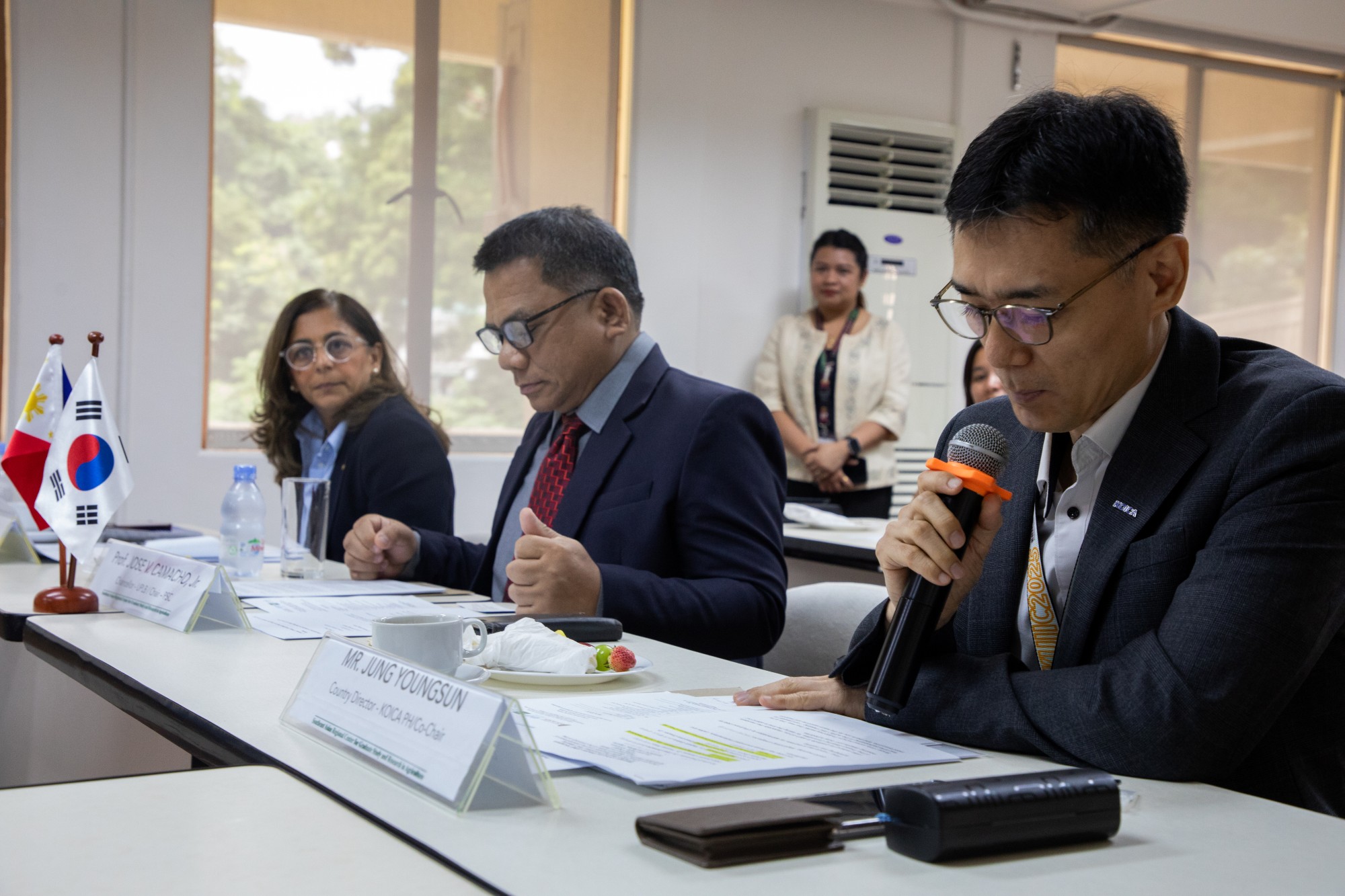A step closer to the Philippines' first Agri-Genomics Research Center

LOS BAÑOS, LAGUNA (26 June 2025) – The Korea International Cooperation Agency (KOICA), the International Rice Research Institute (IRRI), and the University of the Philippines Los Baños (UPLB) have reported significant progress in establishing the country’s first Agri-Genomics Research Center (AGRC) during the latest Project Steering Committee (PSC) meeting.
The AGRC’s superstructure is now complete, with planning ongoing for the procurement and installation of laboratory equipment and administrative offices. Once operational, the AGRC will serve as a national platform for genomics-based research aimed at developing climate-resilient and nutritionally enhanced crops.
“We are proud to announce that the UPLB Agricultural Genomics Research Center is nearing completion,” said UPLB Chancellor Jose Camacho Jr. “Once finished, the AGRC will serve as a national hub for collaboration, innovation, and research on genomics and plant breeding for sustainable agriculture.”
Supported by nearly USD 15 million in funding from the South Korean Government, the AGRC is a collaborative initiative among KOICA, IRRI, and UPLB. It is envisioned as a state-of-the-art facility that will advance OMICs research, including genomics, proteomics, and metabolomics, and other related fields, for rice and other key crops.
The center will also help accelerate the delivery of improved varieties to farmers. “Faster varietal innovation means delivering drought-tolerant, flood-surviving, or zinc-rich varieties when farmers need them, not a decade later,” said IRRI Director General Yvonne Pinto. “Integrating genomic selection with IRRI’s speed breeding and phenomics workflows will allow us to cut crop improvement cycles from years to months.”
Beyond research, the AGRC is playing a key role in building the country’s scientific capacity. Since 2022, more than 150 scientists, scholars, and regulators have received training in genomics, biosafety, and data analytics. The project also supports 15 MSc students under the UPLB-IRRI scholarship track, with 11 already completing their coursework. At the same time, 10 PhD Scholars who are affiliated with UPLB, Bicol University, and Philippine Coconut Authority, are currently onboarded nine (9) hub-Korean Universities.
The Korea-Philippines Omics Partnership Network (KPOPnet), formed by 14 founding member institutions, continues to expand as more universities and research agencies across the country express interest in joining. KOICA Country Director JUNG Youngsun emphasized the long-term value of the initiative: “Ultimately, it is aspired that the national government and industry partners adopt these innovations, leading to positive outcomes for our farmers. Farmers will have access to high-quality seeds that are both affordable and accessible. KOICA is in full support of this undertaking.”
Following these developments, IRRI will continue to provide technical support for the AGRC through the co-development of the center’s operational manual, academic mentorship, and collaborative curriculum development. Academic exchange programs with Korean universities will also be part of ongoing cooperation.